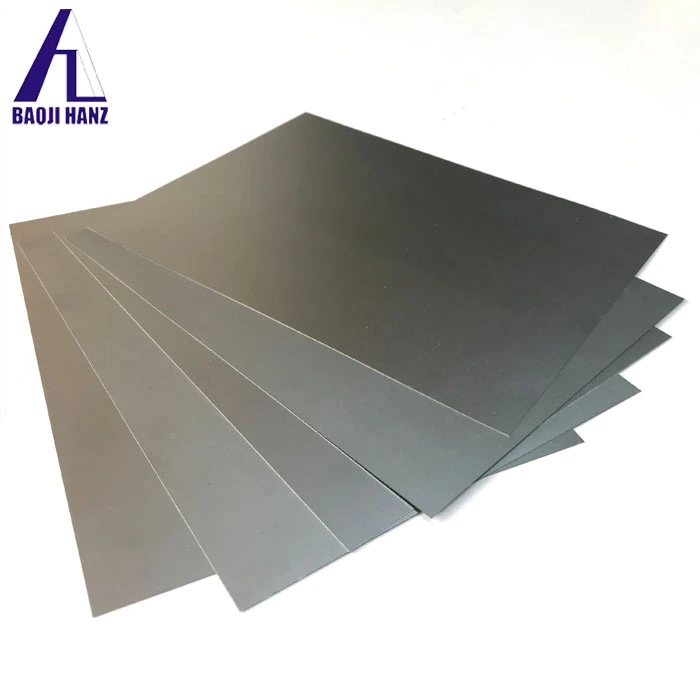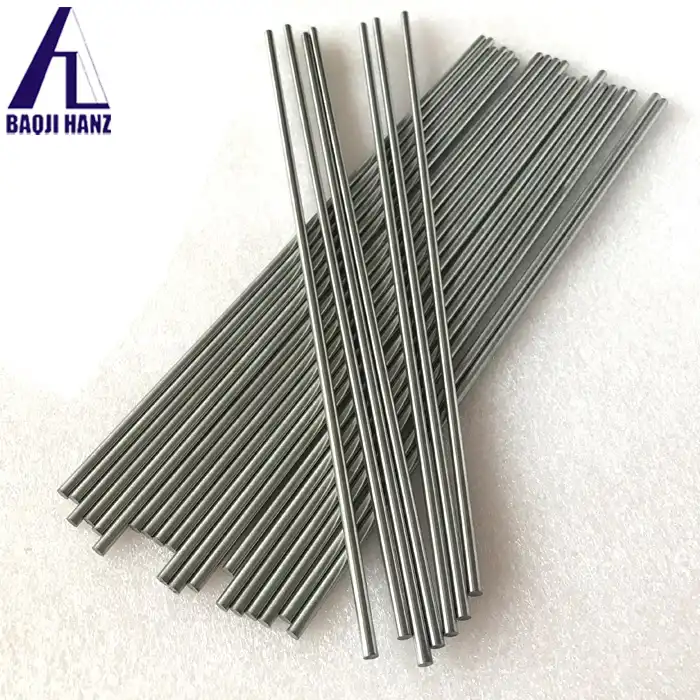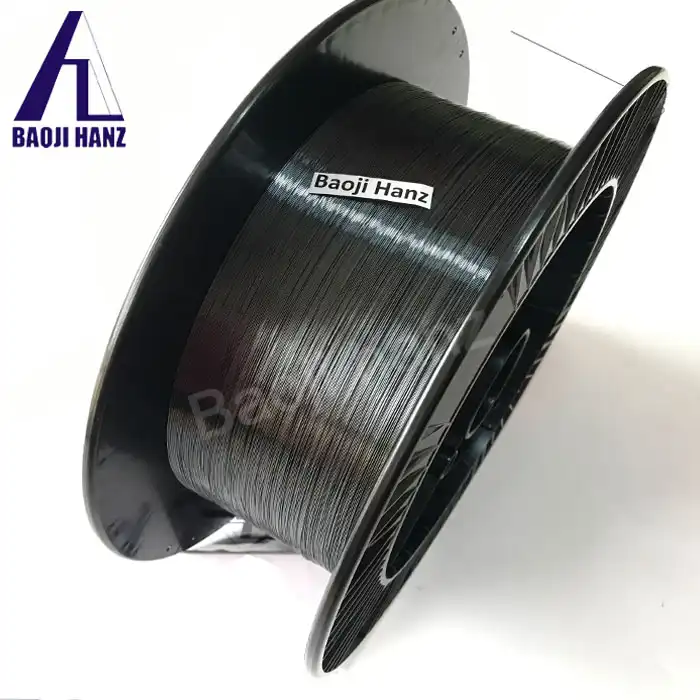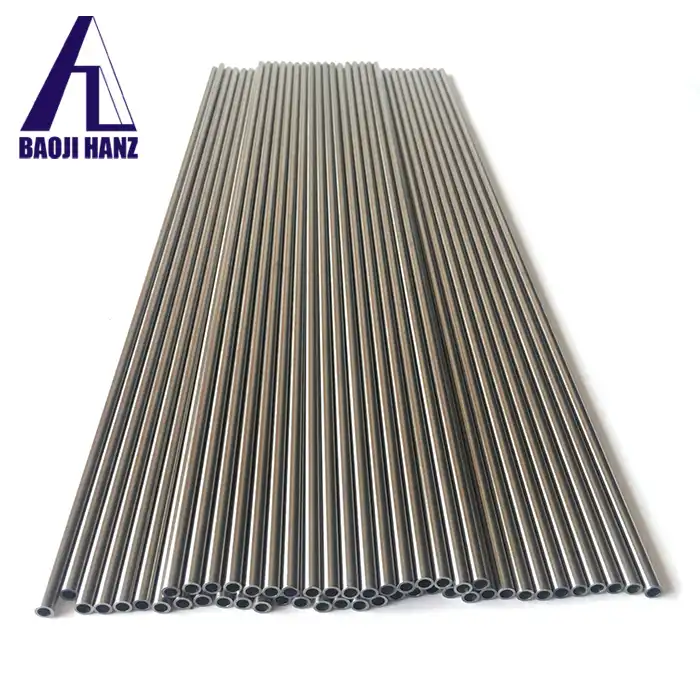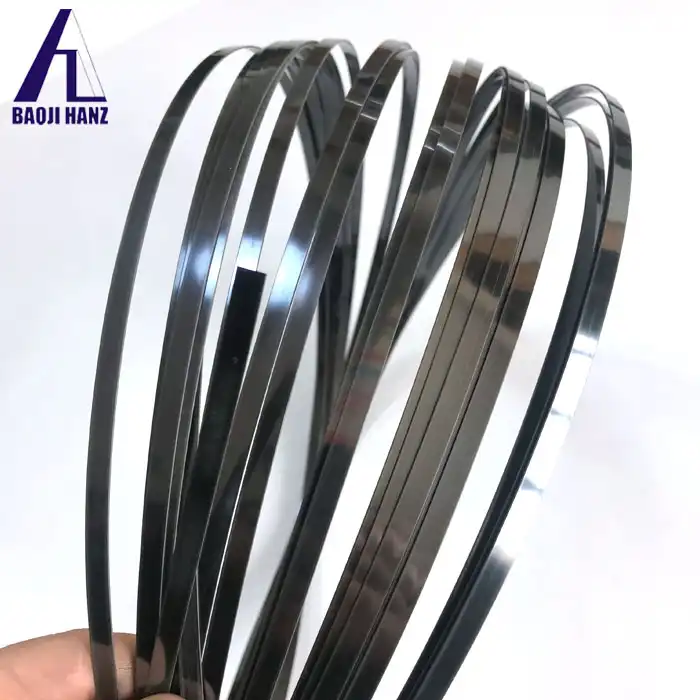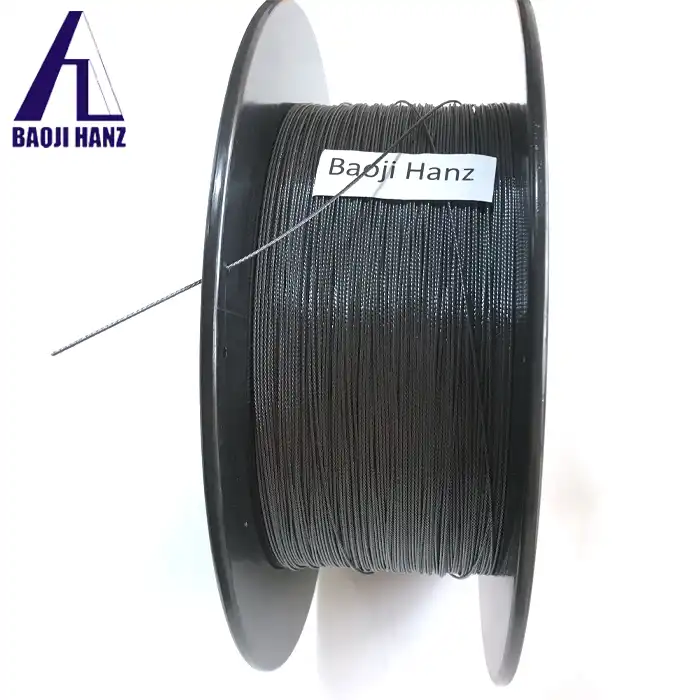What is super elastic nickel titanium (NiTi) flat wire used for in the medical field?
2025-04-16T16:00:00.000Z
Superelastic nickel titanium (NiTi) flat wire, often referred to as nitinol, has revolutionized medical device manufacturing due to its extraordinary mechanical properties. Medical super elastic nickel titanium flat wire combines remarkable flexibility, shape memory capabilities, and biocompatibility, making it indispensable for various advanced medical applications. This specialized alloy, typically containing 54% nickel and 46% titanium, has transformed minimally invasive procedures by enabling the development of sophisticated medical devices that can navigate through complex anatomical structures while maintaining structural integrity and functionality.
Applications of Superelastic NiTi Flat Wire in Medical DevicesCardiovascular Applications
Superelastic nickel titanium flat wire has found extensive use in cardiovascular applications due to its unique mechanical properties. Medical super elastic nickel titanium flat wire is particularly valuable in the production of vascular stents, which are implanted to maintain the patency of blood vessels. These stents leverage the material's superelasticity to compress during delivery through narrow catheters and then expand to their predetermined shape once deployed within the vessel. Baoji Hanz Metal Material Co., Ltd. proudly offers Medical Super Elastic Nickel Titanium Flat Wire with superior flexibility, ensuring that it can be bent and stretched without losing its shape, ideal for intricate cardiovascular devices. The wire's superelastic properties allow it to remain elastic under stress, enabling stents to adapt to vessel movements during cardiac cycles while maintaining their supportive function.
Orthopedic Implementations
In orthopedic applications, medical super elastic nickel titanium flat wire serves a crucial role in both implantable devices and surgical instruments. The material's combination of flexibility and strength makes it ideal for bone fixation devices, such as intramedullary nails and bone staples, which must conform to anatomical structures while providing stable support. Baoji Hanz Metal Material Co., Ltd.'s nickel titanium alloy, with its tensile strength of 800pa and hardness of 30bh, delivers excellent mechanical performance in these demanding applications. The material's shape memory effect enables orthopedic implants to be compressed during insertion and then expand to their functional shape once in position, minimizing tissue trauma during placement. This characteristic, coupled with its high strength despite flexibility, makes the wire particularly valuable for trauma fixation and spinal correction devices.
Neurovascular Devices
The field of neurovascular intervention has been transformed by the introduction of medical super elastic nickel titanium flat wire. The material's exceptional flexibility and kink resistance make it ideal for manufacturing guidewires, catheters, and stent retrievers used in treating cerebrovascular conditions such as aneurysms and strokes. Baoji Hanz Metal Material Co., Ltd. produces this wire with minimal impurity content (0.001%) and ISO13485:2016 certification, ensuring its suitability for these critical applications. The superelastic properties of the wire allow neurovascular devices to navigate through the tortuous cerebrovasculature without causing trauma, while its shape memory enables deployment of embolic protection devices and stents in precise locations. The material's biocompatibility and corrosion resistance ensure long-term safety when implanted in neurovascular tissues.
Mechanical Properties Driving Medical Applications
Superelasticity Phenomenon
The superelasticity of nickel titanium flat wire is the key property driving its widespread adoption in medical applications. Medical super elastic nickel titanium flat wire exhibits an extraordinary ability to undergo large deformations and return to its original shape without permanent damage. This behavior results from a stress-induced phase transformation between austenite and martensite crystalline structures. Baoji Hanz Metal Material Co., Ltd.'s nitinol wire, with its precise nickel content of 54% and titanium content of 46%, is engineered to optimize this superelastic response. The material's superelastic properties enable medical devices to sustain repeated deformation cycles during insertion, deployment, and in-service conditions without fatigue failure. This is particularly critical for implantable devices subject to cyclic physiological loading, such as vascular stents and heart valve frames, where conventional materials would fail due to plastic deformation or fatigue.
Shape Memory Characteristics
The shape memory effect exhibited by medical super elastic nickel titanium flat wire provides unique functional capabilities for medical devices. This property allows the material to "remember" a predefined shape, which it returns to when exposed to specific thermal conditions. Baoji Hanz Metal Material Co., Ltd.'s wire, designed to operate at temperatures below 80°C, harnesses this phenomenon for controlled deployment of medical implants. The shape memory effect works through a temperature-dependent phase transformation, where the material can be deformed in its martensite phase and recovers its original austenite shape upon heating. This enables the design of self-expanding stents, orthodontic archwires, and surgical instruments that can be compressed for minimally invasive delivery and then automatically deploy to functional configurations when exposed to body temperature.
Biocompatibility and Corrosion Resistance
The exceptional biocompatibility and corrosion resistance of medical super elastic nickel titanium flat wire are essential for long-term implantable devices. Baoji Hanz Metal Material Co., Ltd.'s wire, manufactured to high purity standards with minimal impurities, forms a stable titanium oxide surface layer that provides excellent resistance to bodily fluids. This non-toxic and biocompatible nature ensures no adverse reactions when implanted in the human body. The material's resistance to pitting and crevice corrosion exceeds that of conventional stainless steels, contributing to the longevity of implantable devices. Additionally, the wire's biocompatibility has been validated through rigorous testing following ISO10993 standards, confirming its safety for extended contact with blood, tissue, and bone in various clinical applications.
Specialized Medical Applications
Minimally Invasive Surgical Instruments
Medical super elastic nickel titanium flat wire has enabled significant advances in minimally invasive surgical instruments. Its unique combination of flexibility and strength allows for the development of articulating graspers, scissors, and needle drivers that can navigate through small incisions and endoscopic ports. Baoji Hanz Metal Material Co., Ltd.'s wire, available in large amounts of ready stock with customization options, serves as the backbone for these sophisticated instruments. The material's superelastic properties ensure that instruments can bend around anatomical structures and return to their original shape, enhancing surgical precision while minimizing tissue trauma. Furthermore, the thermal memory function of the wire ensures consistent performance across varying temperatures encountered during sterilization and surgical procedures, maintaining precise instrument functionality throughout extended operations.
Orthodontic Applications
In orthodontics, medical super elastic nickel titanium flat wire has revolutionized treatment approaches by providing gentle, continuous forces for tooth movement. Archwires made from this material exert relatively constant forces over large deflections, unlike conventional wires that deliver decreasing forces as teeth move. Baoji Hanz Metal Material Co., Ltd. offers this specialized wire with EU CE certification, ensuring its safety for oral applications. The wire's superelastic behavior enables it to engage severely misaligned teeth without permanent deformation, while its shape memory properties allow it to maintain the desired arch form throughout treatment. Additionally, the material's corrosion resistance in the oral environment, coupled with its biocompatibility, minimizes the risk of adverse reactions during the extended treatment periods typical of orthodontic therapy.
Endovascular Devices
Endovascular interventions rely heavily on medical super elastic nickel titanium flat wire for the manufacture of guidewires, catheters, and filter devices. The material's kink resistance and flexibility allow these devices to navigate through complex vascular pathways while maintaining pushability and torque transmission. Baoji Hanz Metal Material Co., Ltd. produces this wire with precise dimensional control, available in custom specifications through their OEM services. The superelastic properties of the wire enable the development of vena cava filters that can be compressed for delivery through small-diameter catheters and then expand to capture emboli while maintaining vessel patency. Furthermore, the material's temperature sensitivity, engineered to activate at specific body temperatures, ensures reliable deployment of these devices once they reach their target location, enhancing procedural success rates in thrombectomy and embolic protection.
Conclusion
Medical super elastic nickel titanium flat wire has transformed modern healthcare through its unique combination of superelasticity, shape memory, biocompatibility, and mechanical strength. From cardiovascular stents to orthodontic archwires, this remarkable material continues to enable innovative medical technologies that improve patient outcomes while reducing procedural risks and recovery times.
At Baoji Hanz Metal Material Co., Ltd., we bring 7 years of expertise in Nitinol Shape Memory Alloy, Superelastic Nitinol Alloy, and Nickel Titanium Alloy to your medical device projects. Our direct supply chain ensures cost advantages without compromising quality, while our large inventory of standard sizes guarantees fast delivery to meet your production timelines. Looking to develop a custom medical device using our superelastic nickel titanium flat wire? Contact our engineering team today at baojihanz-niti@hanztech.cn to discuss how our OEM services can bring your innovative concepts to life with materials that meet the highest standards of performance and safety.
Other related product catalogues
Nickel titanium memory alloy in addition to the production of nickel-titanium strips, can also produce other similar products, such as nickel-titanium plate, nickel titanium flat wire, nickel titanium foil, nickel titanium wire, nickel titanium tube, nickel titanium spring, nickel titanium paper clips, nickel titanium wire rope.
|
|
|
|
|
|
|
|
References
1. Johnson, D. & Smith, K.L. (2023). Applications of Superelastic Nitinol in Modern Cardiovascular Devices. Journal of Biomaterials Applications, 37(3), 429-448.
2. Chen, W., Harrison, S.E., & Thompson, V.P. (2022). Mechanical Properties and Clinical Applications of Nickel-Titanium Alloys in Orthodontics. American Journal of Orthodontics and Dentofacial Orthopedics, 161(2), 185-197.
3. Duerig, T.W., Tolomeo, D.E., & Wholey, M. (2021). An Overview of Superelastic Stent Design. Minimally Invasive Therapy & Allied Technologies, 30(4), 217-228.
4. Patel, S.M. & Rodriguez, A. (2022). Advances in Nitinol-Based Neurovascular Intervention: A Comprehensive Review. Journal of Neurointerventional Surgery, 14(8), 773-780.
5. Zhang, Y., Jiang, S., & Wang, L. (2023). Biocompatibility Assessment of Next-Generation Nickel-Titanium Alloys for Long-Term Implantable Medical Devices. Acta Biomaterialia, 146, 156-169.
6. Anderson, R.B., Patterson, E.J., & Kim, H.S. (2023). Shape Memory Effect in Medical Applications: From Concept to Clinical Implementation. Annual Review of Biomedical Engineering, 25, 103-127.
